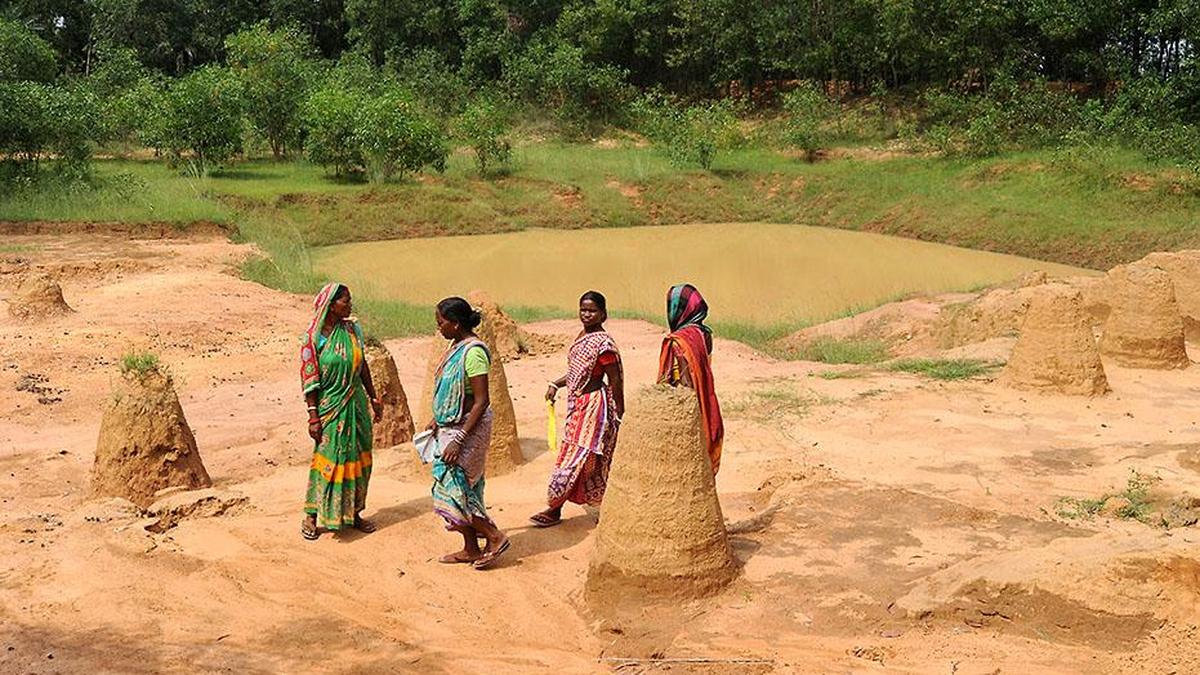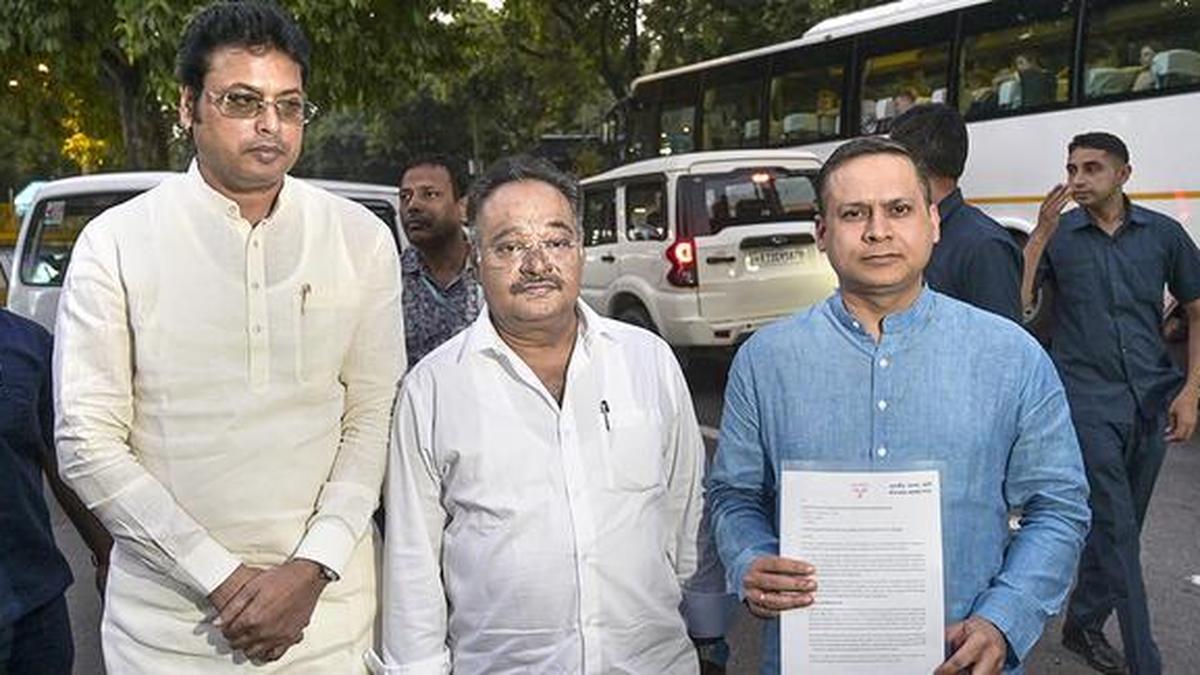The Supreme Court on Friday (October 31, 2025) asked the Directorate of Enforcement (ED) to respond to Chaitanya Baghel, son of former Chhattisgarh Chief Minister Bhupesh Baghel, who challenged the legality of his arrest in a liquor scam case on the ground that he did not cooperate with the investigation.
Issuing notice to the ED, a Bench of Justices Surya Kant and Joymalya Bagchi also raised the point of investigating agencies stalling trial proceedings from beginning by “endlessly” continuing with the investigation, as a result of which the accused continue to languish in prison as an undertrial.
“Besides the grounds of arrest, the issue here is the interpretation of Section 193 of the Bharatiya Nagarik Suraksha Sanhita, 2023… How long can you continue with your ‘further investigation’?” Justice Bagchi asked Additional Solicitor General S.V. Raju, appearing for the ED.
Mr. Raju said the agency had a statutory time of three months, and this time period has been upheld by the Supreme Court itself. Appearing for Mr. Baghel, senior advocates Kapil Sibal and N. Hariharan said their client was arrested on the ground of non-cooperation with the scam investigation.
“But I was never summoned by the ED under Section 50 of the PMLA in the first place. They never sent me a notice to appear before them… Then how can they say I impeded the investigation by not revealing the facts… How could they arrest me? Arrests under Section 19 of the Prevention of Money Laundering Act (PMLA) can only be affected if they are prima facie convinced I have committed the crime… But how can they come to such a conclusion without first calling or summoning me?” Mr. Sibal asked the court.
Mr. Sibal said the modus operandi of the ED seemed to be first the filing of a complaint and then arrest, after which is to ensure the trial never begins by repeating the litany that there is further investigation to be made. “The investigation does not seem to end,” Mr. Hariharan submitted.
The ₹2,000 crore liquor scam involves allegations that politicians, excise officials and private operators manipulated the liquor trade in Chhattisgarh between 2019 and 2022. Mr. Baghel, who was arrested in July, is accused of laundering a part of the proceeds of crime through shell companies and real estate investments.
In a separate petition, Mr. Baghel has challenged the constitutionality of specific provisions of the PMLA for violating accused persons’ fundamental rights against self-incrimination and to maintain silence under questioning by an investigating agency.
“Section 50 and 63 of the PMLA are unconstitutional, being violative of fundamental rights guaranteed under the Constitution. The framework under Sections 50(2) and 50(3) of the Act infringes the fundamental rights against self incrimination guaranteed under Article 20(3) of the Constitution. The provisions permit the ED to summon any person, compel answers and production of documents under a threat of penalty,” he has submitted.
But the Supreme Court refused to entertain separate petitions filed by Mr. Baghel and his son, Chaitanya Baghel, who was arrested by the Directorate of Enforcement (ED) under the PMLA in the Chhattisgarh liquor scam case on July 18, challenging the “piecemeal investigations” being carried out by the ED. They contended that the probe has become a source of harassment.
The Baghels, represented by senior advocates Kapil Sibal and A.M. Singhvi along with advocate Vipin Nair, said the prosecution in the liquor case was systematically misusing Section 173(8) of the Code of Criminal Procedure, 1973 and Section 193(9) of the BNSS.
“These provisions, which permit ‘further investigation’ without adequate procedural safeguards, confer unfettered discretion on investigating agencies, enabling arbitrary and prolonged investigations that violate the fundamental rights to equality, personal liberty, and fair trial under Articles 14, 20, and 21,” the petitions had contended.
Similarly, it submitted that Section 44 of the PMLA, which merely deals with the procedural aspects concerning the cognisance and trial of offences before the Special Court, cannot be used to confer the ED with substantive powers of “further investigation”.

 5 days ago
7
5 days ago
7









 English (US) ·
English (US) ·